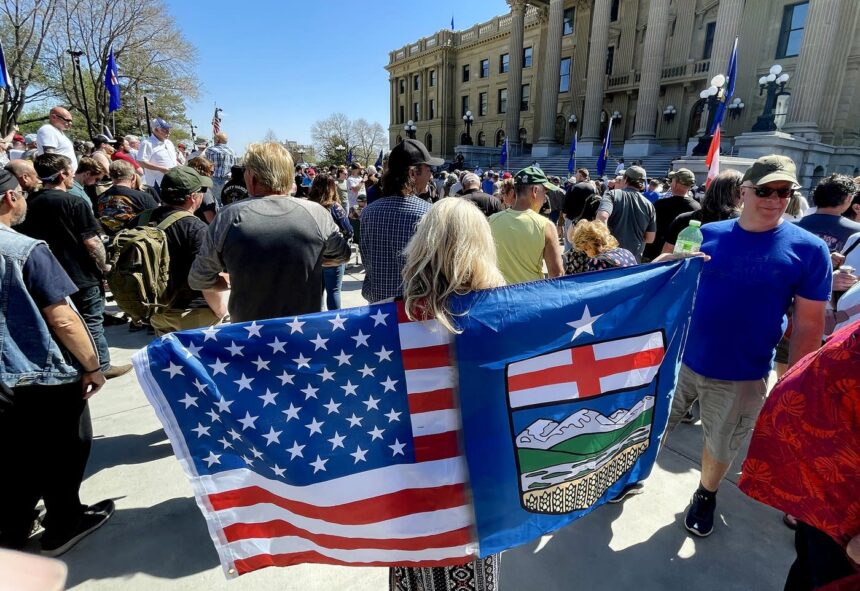EDMONTON – Hundreds of people in Alberta filled the grounds outside the legislature, many holding provincial flags and a few waving American ones. They came together to show support for Alberta leaving Canada, saying they have lost hope that the current system will ever work for them.
Some in the crowd said changing the government in Ottawa would not fix their problems. Many blamed years of Liberal policies for blocking pipelines and hurting Alberta’s energy sector. Several people at the rally believed the recent election was unfair, which added to their frustration.
Premier Danielle Smith spoke about making changes to Alberta’s relationship with Ottawa but still backed the idea of staying in a united Canada. Even so, her government introduced new legislation that would make it easier for citizens to force a referendum on issues like separation.
People at the rally said they felt ignored after the federal election. Some argued that Alberta’s resources make it strong enough to stand alone, while others said they could no longer see a future within Confederation.
Counter-protesters were also present, reminding everyone that separation would affect treaty rights with First Nations. Alberta’s Premier stressed that all treaty rights would be respected, no matter what changes are made.
Many Albertans left the event feeling that nothing would change as long as Carney and the federal Liberals remain in power. Calls for separation seem to be growing louder among those who feel Alberta’s voice is not being heard in Ottawa.
Key Drivers of Alberta’s Separatist Sentiment
The separatist movement in Alberta in 2025 has gained attention due to longstanding grievances and recent political developments, though it remains a minority view with significant challenges.
Alberta’s separatist movement is rooted in a sense of economic and political marginalisation by the federal government in Ottawa. Many Albertans feel their oil-rich province contributes disproportionately to Canada’s economy but receives inadequate representation and benefits.
This sentiment, known as “western alienation,” has persisted for over a century, fueled by policies like the National Energy Program (NEP) and recent environmental regulations perceived as targeting Alberta’s oil and gas sector.
The 2025 federal election, resulting in a fourth consecutive Liberal victory under Mark Carney, has intensified separatist rhetoric.
Polls indicate that approximately 30% of Albertans and 33% of Saskatchewanians would consider voting to leave Canada if the Liberals remain in power, though this is lower than 2019 levels (60% in Alberta supported separatism then). The Liberals’ win, driven by support in Ontario and Quebec, exacerbates feelings of regional disenfranchisement.
Alberta Premier Danielle Smith’s introduction of legislation in 2025, lowering the signature threshold for citizen-initiated referendums to 177,000 (3.5% of the population), has made a separation vote more feasible.
This move, part of the United Conservative Party’s (UCP) agenda, has been criticised by opponents as enabling separatist momentum, though Smith herself has not explicitly endorsed independence.







